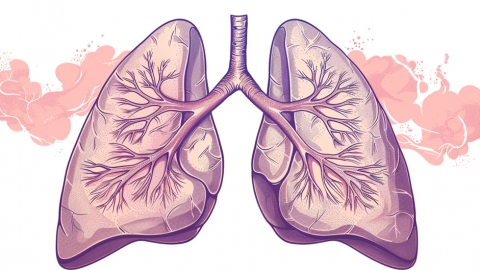Can practicing deep breathing every day enhance lung function?
Whether practicing deep breathing daily can enhance lung function generally depends on an individual's physical condition and the specific techniques used. Detailed analysis is as follows:

For healthy individuals or those with mild decline in lung function, practicing proper deep breathing techniques daily—such as diaphragmatic breathing, involving slow inhalation to expand the abdomen followed by slow exhalation to contract it—can, with long-term adherence, strengthen respiratory muscles, increase lung capacity, improve pulmonary ventilation efficiency, and thus enhance lung function to a certain extent.
For individuals with severe pulmonary diseases, such as advanced chronic obstructive pulmonary disease (COPD) or pulmonary fibrosis, where irreversible lung tissue damage has occurred, or for those who breathe too deeply or rapidly during practice, causing hyperventilation, deep breathing may not only fail to improve lung function but could also trigger symptoms such as dizziness and chest tightness, potentially increasing the burden on the lungs.
Deep breathing exercises should be performed in an environment with fresh air, avoiding polluted or enclosed spaces. Each session should not last too long and should cease before fatigue is felt. Individuals with pre-existing lung conditions should consult a physician before beginning such exercises and adjust the method and intensity according to their own condition. If symptoms such as difficulty breathing or chest pain occur during practice, the exercise should be stopped immediately and medical attention sought.




